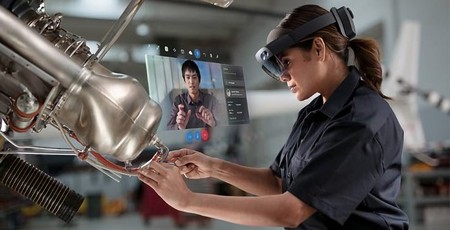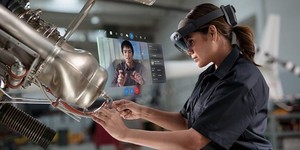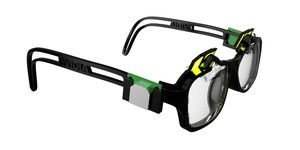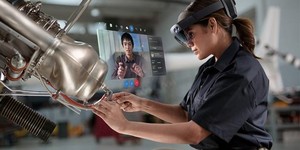HoloLens AR found to hamper fine motor skills
May 20, 2019 | 11:14
Companies: #microsoft #university-of-pisa

A study carried out by researchers at the University of Pisa has poured cold water on Microsoft's vision of the HoloLens augmented reality platform as the future of the industrial and medical fields, finding that users were considerably less accurate at fine-motor-control tasks than without the headset.
Yet to be launched commercially, Microsoft's HoloLens and HoloLens 2 headsets offer augmented reality in a narrow field of vision - positioned by the company as interactive holography. While the unveiling of the original HoloLens suggested that it would include a focus on gaming, the company's recent efforts for its successor have focused entirely on professional use - particularly for design, industrial, and medical applications, where a HoloLens wearer can pull up information, overlay additional imagery, or even participate in a live video chat while working.
Microsoft's claim that 'HoloLens is changing how we work, learn, communicate, and get things done,' appears to have been proven in a study at the University of Pisa - but, unfortunately for Microsoft, that change isn't a positive one.
According to a write-up of the study published by IEEE Spectrum, the researchers found that HoloLens wearers were considerably less accurate at a join-the-dots task with the headset than without: With the headset, users' accuracy was around 2.3mm away from perfect; without it, just 0.9mm. That's enough to cause serious problems when you're working in the industrial and medical fields.
According to researcher Marina Carbone, those participating in the task were unaware that their precision was hampered by the use of the headset - the result, it's claimed, of 'focal rivalry' between the real world and the computer-generated imagery of the HoloLens - but did report increased levels of fatigue during the task. The study is to be repeated with participants hooked up to an electroencephalogram (EEG) to better determine the difference between AR-aided and unaided performance.

MSI MPG Velox 100R Chassis Review
October 14 2021 | 15:04








Want to comment? Please log in.